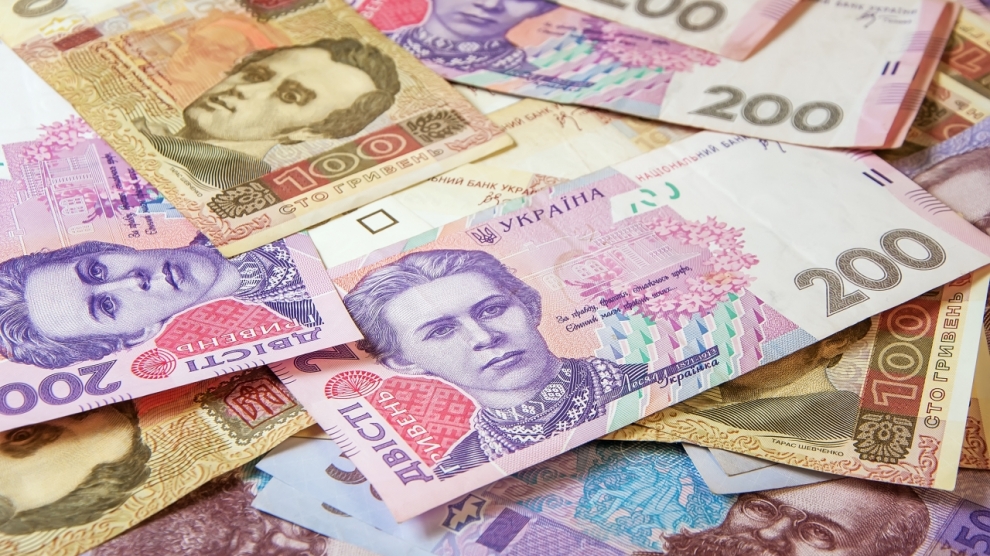Ukraine has renewed its plea for assistance to international backers for financial support in order to avoid a potential economic collapse.
On March 30, the Verkhovna Rada, Ukraine’s parliament, adopted draft legislation that would prohibit Ukrainian oligarch Igor Kolomoisky from regaining control over PrivatBank, the country’s largest commercial lender that belonged to Mr Kolomoisky until the bank was nationalised in 2016 following the discovery of 5.5 billion US dollar hole in its balance sheets, allegedly from fraudulent lending.
As part of a state-wide clean up of the Ukrainian banking system, PrivatBank was recapitalised with government support equivalent to six per cent of the country’s GDP. Mr Kolomoisky says that the nationalisation was unlawful and has initiated a number of lawsuits at Ukrainian courts in order to regain ownership of the commercial bank.
In addition, the legislation, commonly referred to as the “anti-Kolomoisky bill”, will prevent any other former owners of more than 100 Ukrainian banks from regaining ownership of their former assets.
In a late-night session, the Rada also approved a much-debated bill that will relaunch the country’s land market. Entering into force in July 2021, the law will allow Ukrainians to purchase limited amounts of farmland, while the question of whether foreigners can also buy land proportions will be put to a referendum.
“The law is very restrictive, but it does open a market,” says Anders Aslund, a senior fellow at the US-based Atlantic Council, highlighting that the final bill put forward by the ruling Servant of the People party is a “virtually nullified version” due to the number of restrictions it includes.
The adoption of the two bills were the main conditions set by the International Monetary Fund (IMF) for providing much-needed financial assistance to Ukraine.
Last December, the IMF agreed in principle with the former Ukrainian government of Oleksiy Honcharuk to provide the country with an Extended Funding Facility of 5.5 billion US dollars over a period of three years.
“Support for the economy of Ukraine, for the people who work at enterprises is very important to us. It is very important to us to sign a memorandum with the International Monetary Fund,” Ukrainian president Volodymyr Zelensky told Rada MPs prior to the vote. Mr Zelensky said Ukraine could receive the first tranche (around 1.5-2 billion USD) from the IMF deal 15 days after meeting the Fund’s requirements.
As pointed out by a joint letter of the Ukrainian business community sent to Rada MPs, a scenario without IMF support would mean “a double-digit economic downturn, rapid depletion of foreign exchange reserves, high inflation, and a significant increase in unemployment” for the Ukrainian economy.
During the same Rada session, the Ukrainian parliament – in an unexpected move – sacked Igor Umansky, the country’s finance minister after just 26 days on the job. He was replaced by Sergey Marchenko, an economist who served as deputy finance minister between 2014 and 2018. “Marchenko served under [former finance minister] Jaresko and [former finance minister] Danyliuk, so he seems like a more IMF-friendly appointment as finance minister. Umansky was a bit of a curveball appointment in the first place,” Timothy Ash, a London-based economist specialising in emerging European markets commented.
Also on March 30, Rada MPs adopted an “anti-crisis bill” that – amongst much else – includes banning banks from increasing interest rates until the end of the coronavirus quarantine period (currently April 24), a partial ban on tax authority inspections until June 30, amendments to relax the country’s labour code and legal terms on how employers affected by the crisis should pay their employees.
With the coronavirus pandemic about to turn Ukraine’s economic recovery from the 2014-15 crisis into a recession, Kyiv is now expected to receive an eight billion US dollars package which sources familiar with the IMF said would have been far smaller if Ukraine had failed to approve the bills on reforming the banking system and liberalising its land market.
In its revised economic outlook, the Ukrainian government now expects the country’s GDP to drop by 3.9 per cent this year against a rise of 3.7 per cent projected in early 2020.
“Economic growth is expected to recover from the second half of the year and accelerate in the coming years. Among the reasons are the high global demand for the products of the domestic agro-industrial complex, a much more stable banking system compared to previous crises, lower prices of imported energy products, and continued structural reforms in cooperation with international partners,” wrote Ukrainian news agency UNIAN.
Analysts at Raiffeisen Bank believe that the Ukrainian economy could drop by as much as three per cent of its GDP in 2020 and see a 3.1 per cent rise in 2021, while the Institute of International Finance projects that Ukraine will see a 3.1 per cent drop in GDP in 2020.
According to Andrian Prokip, a senior associate at the Ukrainian Institute for the Future, a Kyiv-based think tank, the sectors which could be the most severely hit by the upcoming crisis in Ukraine are trade, heavy industry, energy, freight services and tourism. The latter could see a decrease of up to 60 per cent.
The European Business Association (EBA), a Kyiv-based business advocacy group, estimates that Ukrainian companies have already recorded some 20-50 per cent of revenue losses over the quarantine measures imposed by the country’s government to tackle the Covid-19 outbreak. A survey published by the EBA finds that 23 per cent of Ukrainian businesses plan salary cuts, 17 per cent will reduce the number of employees, while six per cent of responding companies see no other way than partially closing their businesses.
Without international support, the Ukrainian government has limited space to put forward an economic stimulus package needed to mitigate the impact of the coronavirus pandemic.
Mr Zelensky hopes for an assistance package of at least 10 billion US dollars that includes the IMF money, as well as support from the European Bank for Reconstruction and Development, the World Bank, Azerbaijan and Canada.






Add Comment